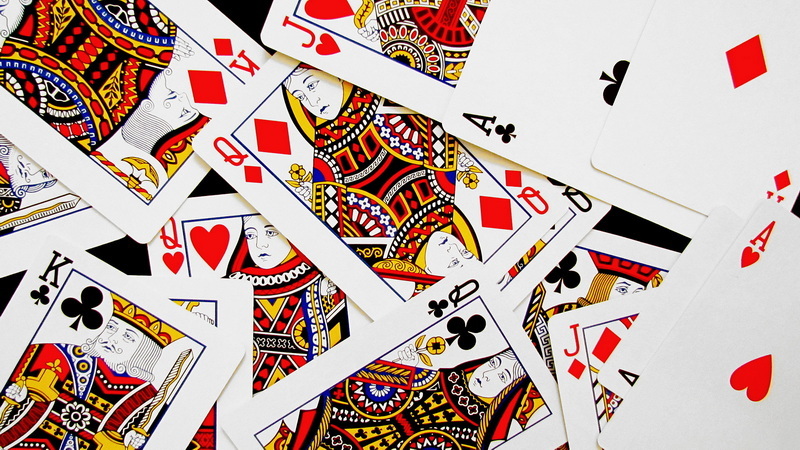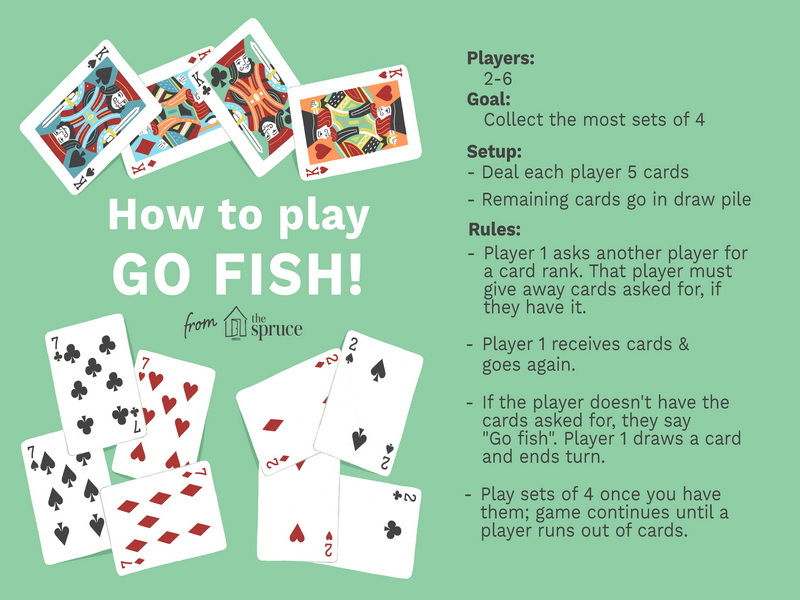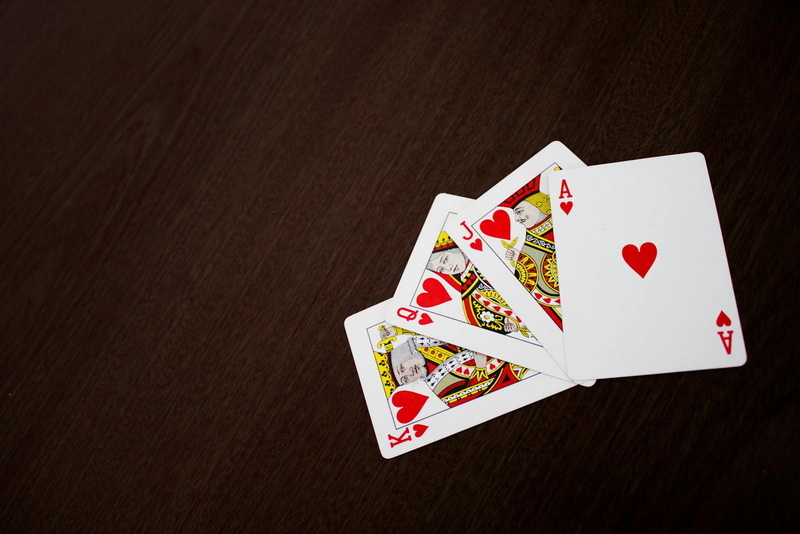Content Menu
● Introduction
● The Basics of Go Fish
>> Objective
>> Equipment
>> Setup
● Gameplay
>> Starting the Game
>> Taking a Turn
>> Forming Books
>> Running Out of Cards
>> Ending the Game
● Strategies for Success
● Variations of Go Fish
>> Happy Families
>> Go Fish for Pairs
>> Crazy Eights Go Fish
>> Team Go Fish
>> Go Fish with Jokers
● Etiquette and Fair Play
● Teaching Go Fish to Children
● Conclusion
● Frequently Asked Questions About Go Fish
>> 1. How many cards are dealt in Go Fish?
>> 2. Can you ask for a card you don't have in Go Fish?
>> 3. What happens if you run out of cards in Go Fish?
>> 4. Is Go Fish a good game for developing memory skills?
>> 5. Can you play Go Fish with more than five players?
● Citations:
Introduction
Go Fish is a classic card game that has entertained players of all ages for generations. Its simplicity and engaging gameplay make it an ideal choice for family game nights, social gatherings, or as a fun way to pass the time. In this comprehensive guide, we'll explore the rules, strategies, and variations of Go Fish, providing you with everything you need to know to become a master of this beloved card game.

The Basics of Go Fish
Objective
The primary goal of Go Fish is to collect the most "books" or sets of four cards of the same rank. For example, four Kings or four Aces would constitute a book. The player who accumulates the most books by the end of the game is declared the winner.
Equipment
To play Go Fish, you'll need:
- A standard 52-card deck
- Two to five players (though variations can accommodate more)
Setup
1. Shuffle the deck thoroughly.
2. Deal cards to each player:
- For 2-3 players: Deal 7 cards to each player
- For 4 or more players: Deal 5 cards to each player
3. Place the remaining cards face-down in the center of the playing area to form the "ocean" or draw pile.
Gameplay
Starting the Game
The player to the left of the dealer typically starts the game. Play then proceeds clockwise.
Taking a Turn
On your turn, follow these steps:
1. Choose a player to ask for a specific rank of card. You must have at least one card of that rank in your hand to ask for it.
2. Ask the chosen player, "Do you have any [rank]?" For example, "Do you have any Queens?"
3. If the player has one or more cards of the requested rank, they must hand over all cards of that rank to you.
4. If you receive the card(s) you asked for, you get another turn.
5. If the player doesn't have any cards of the requested rank, they say "Go fish!"
6. When told to "Go fish," draw one card from the top of the draw pile.
7. If you draw the card you asked for, show it to the other players and take another turn.
8. If you don't draw the card you asked for, your turn ends, and play passes to the next player.
Forming Books
When you collect all four cards of a particular rank, you've formed a "book." Place the book face-up in front of you and take another turn.
Running Out of Cards
If you run out of cards during the game:
1. Draw five cards from the draw pile if there are enough cards remaining.
2. If fewer than five cards remain, draw all the remaining cards.
3. If no cards are left in the draw pile, you're out of the game and must wait for other players to finish.
Ending the Game
The game ends when all thirteen books have been collected or when no cards remain in players' hands and the draw pile. The player with the most books wins the game.

Strategies for Success
To improve your chances of winning at Go Fish, consider these strategies:
1. Memory is key: Pay attention to which cards other players ask for and try to remember who has what.
2. Diversify your requests: Don't always ask for the same rank. Rotate your requests to keep opponents guessing.
3. Timing is everything: If you've just received cards from another player, consider asking for those ranks again soon, as other players may have drawn matching cards.
4. Watch for tells: Observe other players' reactions when cards are requested. They might inadvertently reveal information about their hands.
5. Play the odds: If you have three cards of a rank, the fourth is likely in another player's hand rather than in the draw pile.
6. Bluff occasionally: Ask for cards you don't have to mislead opponents about your hand's composition.
Variations of Go Fish
Happy Families
In this version, players collect sets of four cards from the same family (e.g., all four Kings) rather than just the same rank.
Go Fish for Pairs
Instead of collecting four of a kind, players aim to collect pairs. This variation is excellent for younger players or for quicker games.
Crazy Eights Go Fish
Combine elements of Crazy Eights with Go Fish. When a player goes fishing, they can play an 8 as a wild card to complete a book.
Team Go Fish
Players form teams and work together to collect books. This variation is great for larger groups.
Go Fish with Jokers
Add Jokers to the deck as wild cards that can represent any rank to complete a book.
Etiquette and Fair Play
To ensure an enjoyable experience for all players, follow these etiquette guidelines:
1. Be honest about the cards in your hand.
2. Don't peek at other players' cards or the draw pile.
3. Be a good sport, whether winning or losing.
4. Help younger or less experienced players understand the rules.
5. Keep the game moving at a reasonable pace.
Teaching Go Fish to Children
Go Fish is an excellent game for teaching children various skills:
- Memory: Remembering which cards have been asked for and by whom.
- Counting: Keeping track of how many cards they need to complete a book.
- Social skills: Taking turns, asking politely, and handling winning or losing gracefully.
- Strategy: Learning to make decisions based on the information they have.
When teaching children, start with simplified rules and gradually introduce more complex strategies as they become comfortable with the game.
Conclusion
Go Fish is a timeless card game that offers fun, excitement, and a touch of strategy for players of all ages. Its simple rules make it accessible to beginners, while the element of memory and deduction provides enough depth to keep experienced players engaged. Whether you're looking for a family-friendly activity, a way to entertain children, or a casual game for a group of friends, Go Fish is an excellent choice. By mastering the rules, employing clever strategies, and exploring various game variations, you can ensure that every round of Go Fish is a delightful and memorable experience.

Frequently Asked Questions About Go Fish
1. How many cards are dealt in Go Fish?
The number of cards dealt in Go Fish depends on the number of players:
- For 2-3 players: Deal 7 cards to each player
- For 4 or more players: Deal 5 cards to each player
2. Can you ask for a card you don't have in Go Fish?
No, you cannot ask for a card you don't have in your hand. You must have at least one card of the rank you're requesting.
3. What happens if you run out of cards in Go Fish?
If you run out of cards, you draw from the draw pile. If there are 5 or more cards in the draw pile, take 5 cards. If there are fewer than 5 cards, take all remaining cards. If the draw pile is empty, you're out of the game.
4. Is Go Fish a good game for developing memory skills?
Yes, Go Fish is excellent for developing memory skills. Players must remember which cards have been asked for and by whom to make informed decisions during the game.
5. Can you play Go Fish with more than five players?
While the standard game is designed for 2-5 players, you can accommodate more players by using multiple decks or by playing team versions of the game.
Citations:
[1] https://cms5.revize.com/revize/chemungcounty/Go%20Fish%20Card%20Game%20PDF.pdf
[2] https://www.pokernews.com/card-games/go-fish/go-fish-strategy-tips.htm
[3] https://www.mplgames.com/blog/go-fish-card-game/
[4] https://www.reddit.com/r/boardgames/comments/tcnwl0/how_do_you_play_go_fish/
[5] https://www.dummies.com/article/home-auto-hobbies/games/card-games/general-card-games/how-to-play-go-fish-193799/
[6] https://www.usatoday.com/story/graphics/2023/02/26/how-to-play-go-fish/10798520002/
[7] https://www.mplgames.com/blog/go-fish-rules/
[8] https://www.ducksters.com/games/go_fish_rules.php
[9] https://playingcarddecks.com/blogs/how-to-play/go-fish-game-rules
[10] https://bicyclecards.com/how-to-play/go-fish
































